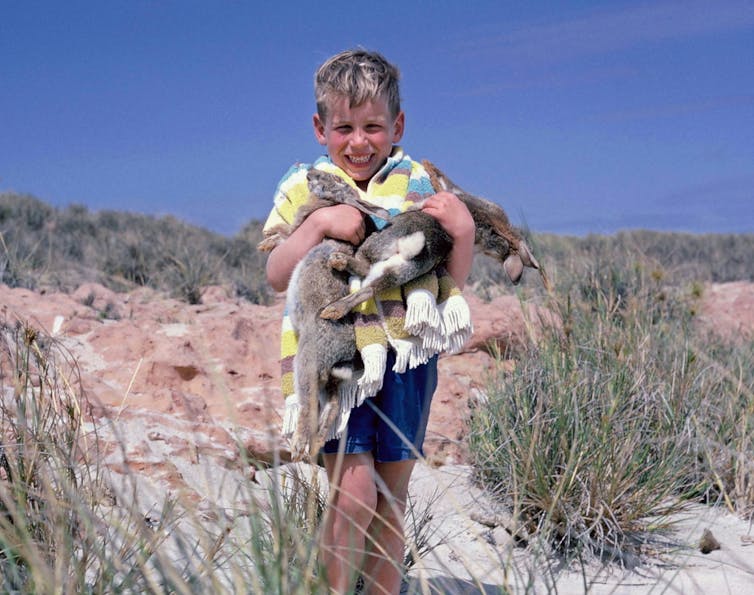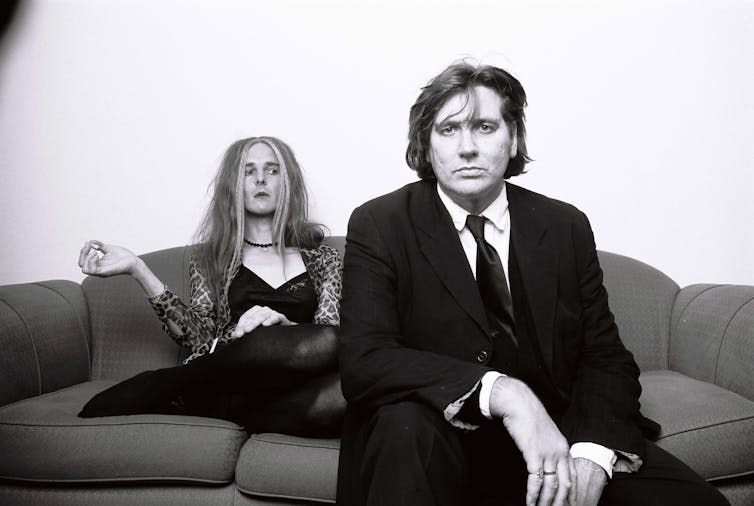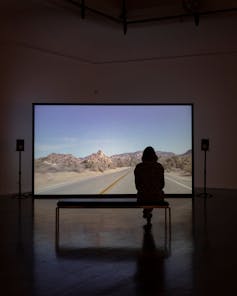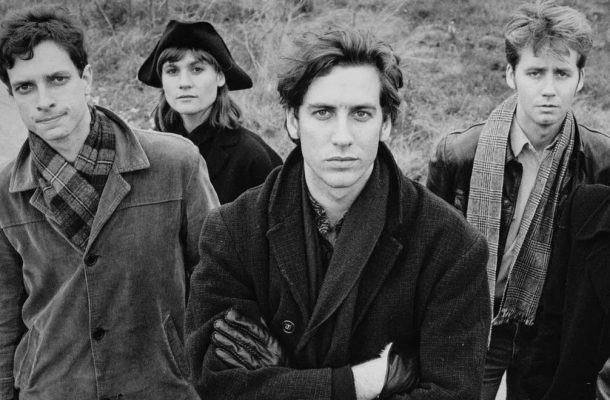David McComb’s lyrics embed narratives of love and loss within the vastness of the Western Australian landscape. “The sky was big and empty, my chest filled to explode, I yelled my insides out at the sun, at the wide-open road.”
It’s a song “full of air,” explains Paul Kelly. The lyrics of McComb, who founded legendary band The Triffids with his friend Alsy MacDonald and brother Robert in 1978, evoke a palpable sense of place. The group attracted enthusiastic audiences at festivals, garnering critical acclaim as part of the Australian indie band invasion of Britain in the early 1980s.
“You don’t just hear these songs,” says Kelly in Jonathan Alley’s extraordinary documentary Love in Bright Landscapes? “You see them, feel and smell them.”
By the late 1980s, The Triffids were filling stadia all over Europe, performing songs such as Wide Open Road, Save What You Can and Bury Me Deep in Your Love. However, this didn’t guarantee commercial success. In 1989, they disbanded, leaving a legacy of tender, lyrical songs and memorable performances.
The band’s successes and frustrations, McComb’s ascendancy as songwriter and performer, his physical decline, and his early death in 1999, aged 36, are beautifully told in this film.
Alley has structured his documentary like one of McComb’s songs. The unfurling narrative is driven by an urgent sense of purpose and inspired by McComb’s “magpie aesthetic,” where everything makes a connection.
From his early life (described by those who loved and worked with him), an image emerges of a sensitive boy from a privileged background with high achieving parents. His mother Athel confesses he was “… different from the others; his life was singular”.

Young David with rabbits.
David met his best mate MacDonald in the 1970s, when he was at Christ Church Grammar School and Alsey was a student at Hollywood High School. Coincidentally, I was Senior Art Master at Christ Church at the time. Art was a means of escape, a way to make sense and break free. The inquiring, intelligent McComb brothers (David had three siblings) trooped through my classes. As McComb said in 1998, the stricter the school, “the better rock and roll music it can produce”.
As punk spread from London to Seattle and Claremont, David and drummer MacDonald formed a band called Dalsy, making their own albums on cassette. Daisy morphed into The Triffids in 1978, drawing on the DIY energy that seems to coalesce around the western edge of continents.
In the documentary Hype, for instance, which chronicles the rise of the grunge scene in Seattle, the lack of mainstream infrastructure is described as liberating, making it possible for young musicians to imagine recording their own music, writing their own magazines, and distributing their work. In Perth, like Seattle, doing it yourself was the only way to get something happening.
A creative cauldron
As a result, these young musicians and entrepreneurs were free to break new ground and stir it up. “David was the original Punk, not Johnny Lydon,” says Alley, “… everything was up for grabs, he made no distinction between high and low culture”.
From the creative cauldron of Perth in the 70s emerged Hoodoo Gurus frontman Dave Faulkner, and bands like the Manikins, Kim Salmon and the Surrealists and The Triffids.
Despite McComb’s conviction that “nothing happens here, nothing gets done, but you get to like it,” The Triffids did make great music and performed some terrific gigs before leaving, first for Sydney, then London.
There they found the success that had eluded them. In 1984, they recorded a session with John Peel on BBC radio. By 1985 they were on the cover of New Musical Express. They were on the cusp of global success, playing major festivals and signed by Island records.
Through Alley’s scrapbook of home videos, photographs, and interviews, we hear how it all slowly unravelled. It’s a sad story of a driven musician whose creativity was the bulwark keeping his demons at bay. Fuelled by a regime of drugs, he died of a heart attack on February 2 1999. The conflict that informed his best work was internal.

David McComb and vocalist Will Akers in 1998.
“I woke to discover an inferior replica of myself,” wrote McComb in a diary note; “avoid madness” in another. This inner tension with his dark side was a catalyst for his songs but as Alley explains “… for David, his best self was his creative self.”
McComb joined the galaxy of rock and roll stars whose short lives continue to inspire generations. Still, albums like Born Sandy Devotional and songs like Wide Open Road remain potent markers in our cultural life.

Laure Prouvost, Lick in The Past, 2016, installation view at the Perth Institute of. Contemporary Arts.
For curator Annika Kristensen, McComb’s album title Love in Bright Landscapes — borrowed from the Spanish poet Rafael Alberti but made his own — is a lens through which to explore the social, political and cultural landscapes of Perth and Los Angeles.
Coincidentally on show currently at Perth Institute of Contemporary Art, the 14 artists from both cities she has selected locate stories of love, hope, desperation, and despair under the vast canopy of a shared open sky.
McComb, whose love stories inflected with pain, humour, and wistful longing bleed into imagery of expansive WA landscapes, would have been delighted.
Love in Bright Landscapes will premiere at Luna Leederville in Perth on September 9.
Love in Bright Landscapes, curated by Annika Kristensen, is at Perth Institute of Contemporary Art, until October 10.















